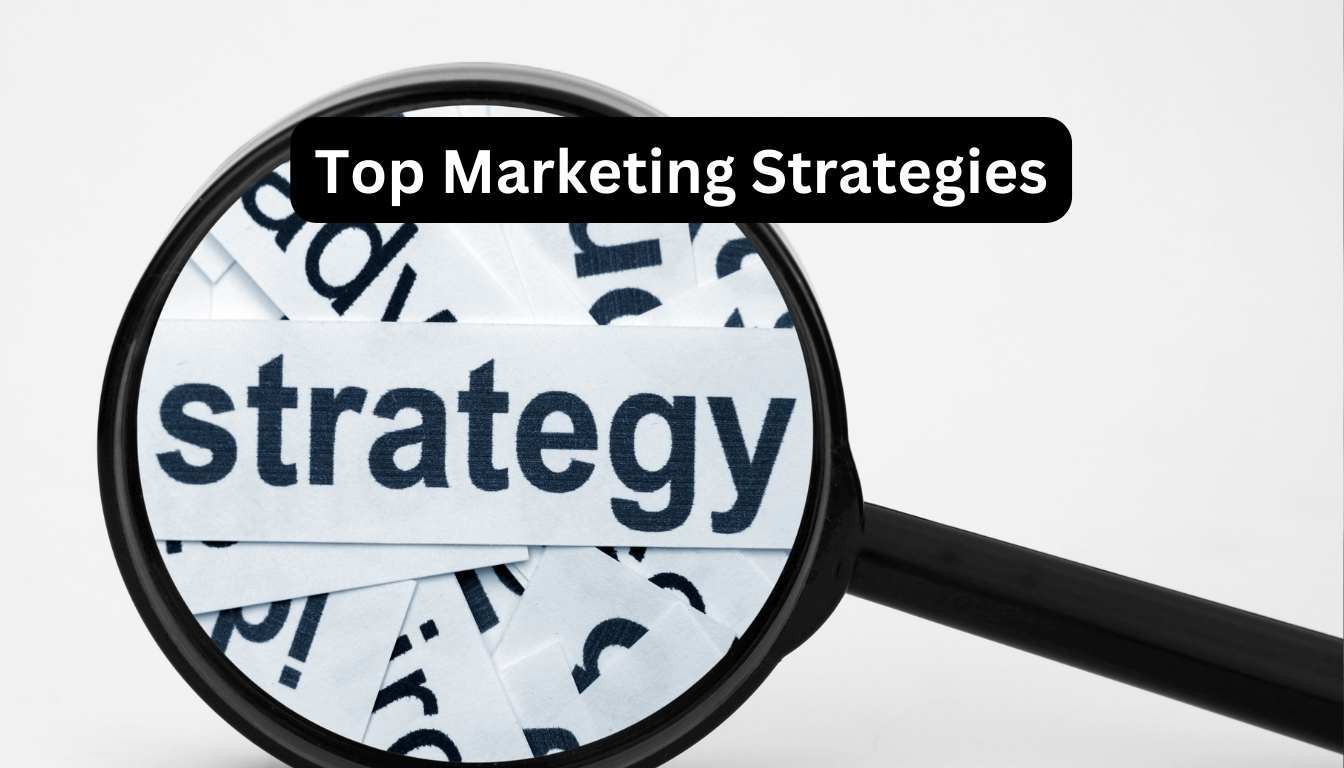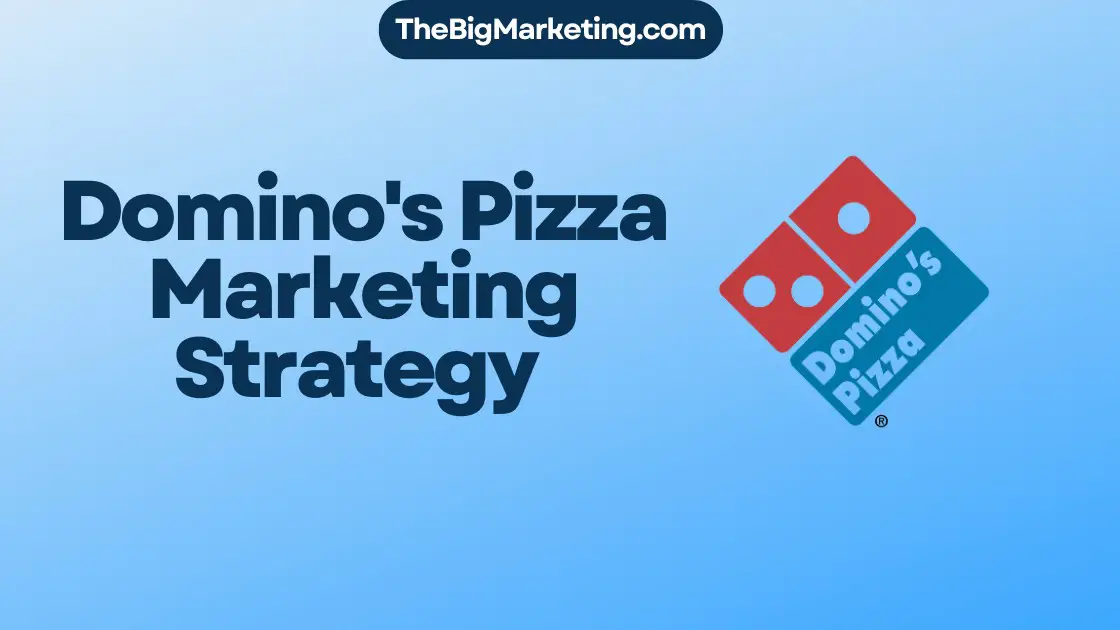A marketing program and a marketing campaign are two distinct aspects of strategic planning and execution. Understanding the differences between these terms is crucial for effective promotion of your business. A marketing strategy serves as an overview of how you will promote your business, while a marketing plan provides more details on the tactics and audiences targeted. On the other hand, a marketing campaign focuses on executing a specific tactic or event promotion within a shorter timeline.
Key Takeaways:
- A marketing program provides an overview of how you will promote your business, while a marketing campaign focuses on executing a specific tactic or event promotion.
- A marketing strategy outlines how you will achieve your business goals, while a marketing plan provides more detailed tactics and target audiences.
- Marketing campaigns are shorter-term initiatives that follow the outline of a marketing plan.
- Marketing programs and campaigns should be evaluated for effectiveness and return on investment.
- An integrated marketing approach combines programs and campaigns to engage the target audience effectively.
What is a Marketing Strategy?
A marketing strategy is a crucial component of a business plan that outlines how you will promote your business to achieve your goals. It provides a comprehensive overview of your brand’s marketing mix, encompassing various channels such as print marketing, digital marketing, and public relations. The marketing strategy sets the foundation for executing effective marketing campaigns and initiatives that resonate with your target audience.
A well-crafted marketing strategy encompasses a range of elements, including:
- Identifying target markets and customer personas
- Setting clear marketing objectives and defining key performance indicators (KPIs)
- Creating compelling messaging and positioning for your brand
- Developing a comprehensive marketing plan
- Establishing a budget for marketing activities
- Selecting appropriate marketing channels and tactics
- Implementing and monitoring marketing campaigns
- Evaluating the effectiveness of marketing initiatives
In addition to the core components mentioned above, a marketing strategy may also include sub-strategies such as content marketing strategies, social media strategies, and public relations strategies. These sub-strategies help to further define the detailed approach for each marketing channel and tactic.
By developing a well-rounded marketing strategy, businesses can effectively align their efforts with their overall business objectives, maximize brand exposure, and engage their target audience across multiple platforms and touchpoints.
What is a Marketing Plan?
A marketing plan is an essential component of strategic planning that provides a detailed roadmap for implementing marketing strategies. It serves as a blueprint for executing tactics and achieving marketing objectives while considering important factors such as timelines, budgets, and evaluation methods. A well-crafted marketing plan includes comprehensive analysis, identifies target audiences, outlines promotional activities, and guides decision-making processes.
The Key Elements of a Marketing Plan
A marketing plan encompasses various elements that contribute to its effectiveness. These elements include:
- Marketing Objectives: Clear goals that specify what the marketing efforts aim to achieve.
- Target Audiences: Identification of the ideal customer segments that the marketing plan aims to reach.
- Tactics: Detailed strategies and activities to be executed to reach the target audiences.
- Timelines: Specific timelines and milestones for the execution of marketing activities.
- Budget Allocation: Allocation of financial resources for each marketing tactic.
- S.W.O.T. Analysis: Assessment of strengths, weaknesses, opportunities, and threats to guide decision-making.
- Evaluation Methods: Metrics and tools used to measure the success and effectiveness of marketing initiatives.
Marketing plans are typically developed on an annual basis but are subject to periodic review and adjustments throughout the year to adapt to changing market conditions. By creating a comprehensive marketing plan, businesses can align their resources, set achievable goals, and effectively measure the success of their marketing efforts.
| Elements of a Marketing Plan | Description |
|---|---|
| Marketing Objectives | Clear goals specifying the desired outcomes of the marketing efforts. |
| Target Audiences | Identification of the ideal customer segments that the marketing plan aims to reach. |
| Tactics | Detailed strategies and activities to be executed to reach the target audiences. |
| Timelines | Specific timelines and milestones for the execution of marketing activities. |
| Budget Allocation | Allocation of financial resources for each marketing tactic. |
| S.W.O.T. Analysis | Assessment of strengths, weaknesses, opportunities, and threats to guide decision-making. |
| Evaluation Methods | Metrics and tools used to measure the success and effectiveness of marketing initiatives. |
What is a Marketing Campaign?
A marketing campaign is a targeted plan focused on executing a specific tactic or event promotion. While it follows the outline of a marketing plan, a campaign typically has a shorter timeline, allowing businesses to achieve specific objectives efficiently. Marketing campaigns are designed to capture the attention of the target audience and drive desired actions, such as making a purchase, attending an event, or engaging with a brand.
The success of a marketing campaign relies on careful planning and consideration of various elements. These include:
- Specific Tactic: A marketing campaign is centered around a specific tactic that aligns with the overall marketing strategy. This tactic can be a product launch, an event promotion, a seasonal sale, or any other marketing initiative aimed at achieving specific goals.
- Target Audiences: A marketing campaign identifies the target audience that the tactic aims to reach and influence. Understanding the audience’s demographics, interests, and preferences helps in crafting relevant messaging and effective promotion strategies.
- Messaging: The messaging of a marketing campaign is crucial in conveying the value proposition and creating a connection with the target audience. It should be persuasive, compelling, and aligned with the overall brand identity.
- Channels: A marketing campaign utilizes various channels to reach the target audience. These can include digital platforms like social media, email marketing, and online advertising, as well as traditional channels like print media, television, and radio.
- Timing: Determining the right timing is vital for the success of a marketing campaign. It involves considering factors such as the target audience’s behavior, seasonality, competitor activities, and industry trends.
- Promotion Methods: A marketing campaign employs specific promotional methods to create awareness and drive engagement. This can include content marketing, influencer partnerships, paid advertisements, public relations efforts, and more.
A marketing campaign can serve different purposes, such as:
- Promoting an upcoming event or webinar
- Launching a new product or service
- Announcing a limited-time offer or discount
- Raising brand awareness and visibility
- Engaging with the target audience through interactive campaigns
By strategically planning and executing marketing campaigns, businesses can effectively reach their target audience, generate interest, and drive desired actions. These campaigns play a crucial role in building brand awareness, increasing customer engagement, and ultimately driving business growth.
| Campaign Element | Description |
|---|---|
| Specific Tactic | The marketing campaign focuses on executing a specific tactic or event promotion within a defined timeline. |
| Target Audiences | A thorough understanding of the target audience enables effective messaging and personalized marketing efforts. |
| Messaging | The campaign messaging should be compelling, persuasive, and aligned with the brand to resonate with the target audience. |
| Channels | Choosing the right channels, both digital and traditional, allows businesses to reach their audience effectively. |
| Timing | Timing considerations ensure that the campaign is launched when the target audience is most receptive. |
| Promotion Methods | The campaign utilizes various promotion methods, such as content marketing, influencer partnerships, and traditional advertising, to maximize reach and engagement. |
Types of Marketing Campaigns
Organizations employ various types of marketing campaigns to achieve their goals and reach their target audiences. These campaigns leverage different strategies and tactics to promote products, build brand awareness, engage customers, and drive conversions. Let’s explore some of the most effective types of marketing campaigns:
1. Product Marketing Campaign
A product marketing campaign focuses on introducing new products or features to the market. It aims to generate excitement, highlight key benefits, and drive sales through targeted promotional activities.
2. Brand Development Campaign
A brand development campaign is centered around creating a brand image and perception in the market. It involves establishing brand values, positioning, and personality to resonate with the target audience and differentiate from competitors.
3. Email Marketing Campaign
An email marketing campaign utilizes email as a primary communication channel to engage and convert customers. It involves strategic email sequencing, personalized content, and automation to nurture leads and drive conversions.
4. Content Marketing Campaign
A content marketing campaign utilizes various content formats, such as blog posts, videos, infographics, and social media, to attract and engage target customers. It aims to move customers through the marketing funnel by delivering valuable and relevant content.
5. User-Generated Content Campaign
A user-generated content campaign encourages customers to create and share content related to the brand. This type of campaign leverages the power of social proof and user endorsements to build trust, engage customers, and expand brand reach.
6. Public Relations/Awareness Campaign
A public relations/awareness campaign is designed to create awareness and positive perception of a brand or its offerings. It involves media outreach, press releases, events, and other PR activities to generate buzz and favorable coverage.
7. Direct Mail Campaign
A direct mail campaign utilizes physical mail to reach target audiences. It can include brochures, catalogs, newsletters, and targeted offers sent directly to customers’ mailboxes to grab their attention and drive response.
8. Affiliate Marketing Campaign
An affiliate marketing campaign leverages partnerships with influencers, bloggers, or other businesses to promote products or services. Affiliates earn a commission for each sale or lead generated through their promotional efforts.
9. Social Media Campaign
A social media campaign utilizes popular social media platforms to create brand awareness, engage target audiences, and drive traffic or conversions. It involves strategic content creation, influencer collaborations, and paid advertising to reach specific demographics.
10. Acquisition Marketing Campaign
An acquisition marketing campaign focuses on gaining new customers or users for a product or service. It employs various tactics, such as lead generation, user sign-ups, and trial offers, to capture the attention and interest of potential customers.
11. Paid Marketing/Advertising Campaign
A paid marketing/advertising campaign involves using paid channels, such as search engine advertising, display ads, or social media ads, to promote products or services to a larger audience. It allows businesses to target specific demographics and maximize their reach.
By choosing the most relevant marketing campaigns for their business objectives, organizations can effectively engage their target audience, increase brand visibility, and drive desired outcomes.
| Type of Campaign | Main Objective | Key Tactics | Main Channels |
|---|---|---|---|
| Product Marketing Campaign | Introducing new products or features to the market | Product launches, promotional offers, demonstrations | Website, social media, email marketing |
| Brand Development Campaign | Creating a brand image and perception | Brand storytelling, visual identity development, brand experiences | Print and digital advertising, events |
| Email Marketing Campaign | Engaging and converting customers through email | Email sequencing, personalization, automation | Email marketing software |
| Content Marketing Campaign | Moving customers through the marketing funnel with valuable content | Blog posts, videos, infographics, social media content | Website, social media, email marketing |
| User-Generated Content Campaign | Encouraging customers to create and share content related to the brand | Contests, hashtags, user-generated content requests | Social media, website |
| Public Relations/Awareness Campaign | Creating awareness and positive perception | Media outreach, press releases, events | Media publications, social media |
| Direct Mail Campaign | Reaching target audiences using physical mail | Brochures, catalogs, personalized offers | Direct mail, postal services |
| Affiliate Marketing Campaign | Leveraging partnerships to promote products | Affiliate programs, referral incentives | Websites, blogs, social media |
| Social Media Campaign | Building brand awareness and engagement through social media | Strategic content creation, influencer collaborations, paid ads | Social media platforms |
| Acquisition Marketing Campaign | Gaining new customers or users | Lead generation, user sign-ups, trial offers | Website, social media, email marketing |
| Paid Marketing/Advertising Campaign | Utilizing paid channels to promote products or services | Search engine advertising, display ads, social media ads | Online advertising platforms |
Marketing Campaign Components
The success of a marketing campaign relies on various components that work together to achieve desired outcomes. By understanding and implementing these key elements, businesses can optimize their marketing efforts and drive impactful results.
1. Goals
Clearly defining goals is the foundation of a successful marketing campaign. Goals provide direction and help measure the effectiveness of the campaign. Whether the goal is to increase brand awareness, generate leads, or drive sales, setting specific and measurable objectives is essential.
2. Key Progress Indicators (KPIs)
Key Progress Indicators (KPIs) are quantitative metrics used to track progress towards campaign goals. They provide valuable insights and help evaluate the success of the campaign. Examples of KPIs include website conversions, click-through rates, social media engagement, and revenue generated.
3. Channels
Selecting the right channels for content distribution is crucial to reach the target audience effectively. Whether it’s social media, email marketing, search engine optimization, or traditional advertising, understanding where your audience is most active and tailoring your content to those channels is essential for campaign success.
4. Budget
Allocating a budget for the marketing campaign ensures that resources are utilized effectively. By defining the budget in advance, businesses can make informed decisions about resource allocation, channel selection, and campaign initiatives.
5. Content Formats
Choosing the appropriate content formats is essential to engage the target audience effectively. Whether it’s blog posts, videos, infographics, or interactive content, presenting information in different formats helps to attract and retain audience attention and increase engagement.
6. Team
Forming a dedicated team responsible for different aspects of the campaign is vital for successful execution. The team should consist of individuals with diverse skills and expertise, including content creators, designers, marketers, analysts, and project managers, to ensure all campaign components are executed efficiently.
7. Creative Assets
Creating compelling and visually appealing creative assets aligning with the campaign’s purpose is crucial for capturing audience attention and driving engagement. These assets can include images, videos, graphics, and branding elements that reflect the campaign’s messaging and visual identity.
By considering and implementing these essential components, businesses can enhance the effectiveness of their marketing campaigns and increase the likelihood of achieving their desired outcomes.
| Components | Description |
|---|---|
| Goals | Clearly define specific and measurable objectives for the campaign. |
| Key Progress Indicators (KPIs) | Select quantitative metrics to track progress and measure campaign success. |
| Channels | Choose the appropriate channels for content distribution based on audience behavior and preferences. |
| Budget | Allocate resources effectively by setting a budget for the campaign. |
| Content Formats | Select engaging content formats that resonate with the target audience. |
| Team | Form a dedicated team with diverse skills and expertise to execute the campaign. |
| Creative Assets | Create visually appealing assets that align with the campaign’s messaging and visual identity. |
How to Create a Successful Marketing Campaign
Creating a successful marketing campaign involves a step-by-step process. By following these key strategies, you can maximize your campaign’s impact and achieve your marketing goals.
1. Campaign Planning:
Start by establishing the purpose of your marketing campaign. Clearly define what you want to achieve and outline your campaign objectives. Use the SMART goal-setting framework – Specific, Measurable, Achievable, Relevant, and Time-bound – to set specific goals. Ensure that your goals align with your overall marketing strategy.
2. Target Audience Definition:
Understand your target audience and their buyer’s journey. Define their demographics, interests, and pain points. This will help you tailor your campaign messaging and select the most effective channels to reach them.
3. Creative Messaging:
Create compelling and resonant messaging that speaks directly to your target audience. Craft a unique value proposition that sets your campaign apart from competitors. Use powerful language, storytelling, and emotion to connect with your audience on a deeper level.
4. Promotion Tactics:
Select the most appropriate promotion tactics based on your target audience and campaign goals. Consider using a mix of digital and traditional channels, such as social media, email marketing, content marketing, public relations, and advertising. Leverage the strengths of each channel to maximize your campaign’s reach and impact.
5. Campaign Launch:
Launch your marketing campaign with a well-coordinated effort. Ensure that all elements, including messaging, creative assets, and channels, are aligned. This will create a cohesive and consistent campaign experience for your target audience.
6. Measuring Campaign and Results Tracking:
Establish the metrics and key performance indicators (KPIs) that align with your campaign goals. Use tools like website analytics, social media monitoring, and customer feedback to measure the success of your campaign. Regularly track and analyze the results to identify opportunities for optimization and improvement.
By following these steps, you can create a successful marketing campaign that effectively engages your target audience, achieves your goals, and drives measurable results.

What Are Marketing Campaigns?
Marketing campaigns encompass a diverse range of activities, events, and content that work together to create a unified brand experience and messaging across various marketing programs. These organized efforts are designed to achieve specific company goals, such as increasing brand awareness or gathering customer feedback. Marketing campaigns utilize a combination of media channels, including email, print advertising, television or radio advertising, pay-per-click, and social media.
Marketing campaigns play a critical role in driving business success by capturing the attention and interest of target audiences. By strategically planning and executing campaigns, companies can communicate their brand messages effectively and engage their audience with compelling content and experiences.
What Is Marketing Campaign Management?
Marketing campaign management is a crucial component of successful marketing strategies. It involves the planning, execution, tracking, and analyzing of marketing campaigns to achieve desired goals and objectives. Effective campaign management ensures that the right message reaches the right audience through carefully coordinated tactics and channels.
During the planning phase, marketers develop a comprehensive strategy that aligns with the overall marketing objectives. This includes setting clear campaign goals, defining target audiences, and creating a timeline for implementation.
Once the planning stage is complete, the execution phase begins, where marketers implement the campaign strategy. This involves creating and distributing campaign content through various channels, such as email marketing, social media, paid advertising, and more. The goal is to engage the target audience and generate brand awareness and customer conversions.
Tracking and analyzing the campaign’s performance is essential for measuring its effectiveness and making data-driven decisions. Marketers use various metrics and key performance indicators (KPIs) to assess the campaign’s impact, such as click-through rates, conversion rates, and return on investment (ROI).
Effective campaign management requires a focus on both the strategic and creative aspects. Marketers must ensure that the campaign content effectively communicates the desired message and resonates with the target audience. This involves crafting compelling copy, designing visually appealing assets, and incorporating appropriate branding elements.
By effectively managing marketing campaigns, businesses can optimize their marketing efforts, improve organization and coordination, and ultimately increase campaign ROI. It allows marketers to adapt and refine their approach based on real-time insights, resulting in more impactful and successful campaigns.
The Key Elements of Marketing Campaign Management:
- Planning: Developing a comprehensive campaign strategy, setting goals, and defining target audiences.
- Execution: Implementing the campaign strategy by creating and distributing campaign content through various channels.
- Tracking: Monitoring the campaign’s performance, analyzing metrics and KPIs, and making data-driven decisions.
- Analyzing: Assessing the campaign’s impact and effectiveness, measuring ROI, and identifying areas for improvement.
- Strategy: Creating a cohesive and integrated approach that aligns with overall marketing objectives.
- Campaign Goals: Defining clear objectives and desired outcomes for the campaign.
- Campaign Content: Developing compelling and engaging content that resonates with the target audience.
- Campaign ROI: Measuring the return on investment to evaluate the campaign’s success and profitability.
Conclusion
Understanding the distinctions between a marketing program and a marketing campaign is essential for strategic planning and execution. While a marketing program serves as an overview of how you will promote your business and encompasses long-term goals, a marketing campaign focuses on executing specific tactics or event promotions within a shorter timeline.
To optimize marketing initiatives and engage target audiences effectively, businesses must clearly define their goals, utilize appropriate tactics, and track campaign effectiveness. This involves evaluating the performance of marketing strategies, comparing different marketing plans, analyzing campaign effectiveness, and measuring the return on investment (ROI) of marketing programs.
By integrating marketing programs and campaigns, businesses can adopt an integrated marketing approach that leverages various digital marketing tactics and strategies. This approach enables them to engage target audiences through cohesive messaging and brand experiences. With a focus on target audience engagement, businesses can achieve their marketing objectives and drive positive results in the form of increased brand awareness, customer acquisition, and revenue growth.
FAQ
What is the difference between a marketing program and a marketing campaign?
A marketing program is an overview of how you will promote your business, while a marketing campaign focuses on executing a specific tactic or event promotion within a shorter timeline.
What is a marketing strategy?
A marketing strategy is a part of the business plan that outlines how you will promote your business to achieve your goals. It includes your brand’s marketing mix, which can involve various channels such as print, digital, and public relations.
What is a marketing plan?
A marketing plan is a more detailed and specific document that supports the marketing strategy. It includes information on the tactics to be used, target audiences, timelines, budget allocation, S.W.O.T. analysis, and evaluation methods.
What is a marketing campaign?
A marketing campaign is a plan focused on executing a specific tactic or event promotion. It follows the outline of a marketing plan but generally has a shorter timeline. Marketing campaigns include details on target audiences, messaging, channels, timing, and promotion methods.
What are the types of marketing campaigns?
There are several types of marketing campaigns that organizations can utilize, including product marketing campaigns, brand development campaigns, email marketing campaigns, content marketing campaigns, user-generated content campaigns, public relations/awareness campaigns, direct mail campaigns, affiliate marketing campaigns, social media campaigns, acquisition marketing campaigns, and paid marketing/advertising campaigns.
What are the components of a marketing campaign?
The components of a marketing campaign include clearly defining goals and key progress indicators, determining the channels for content distribution, setting a budget, deciding on the content formats, forming a team, and creating creative assets that align with the campaign’s purpose.
How do you create a successful marketing campaign?
To create a successful marketing campaign, you should plan the campaign by establishing its purpose, setting specific goals using the SMART goal-setting framework, defining the metrics for measuring success, defining your target audience, crafting a creative messaging strategy, selecting appropriate promotion tactics, launching the campaign, and tracking its results.
What are marketing campaigns?
Marketing campaigns are organized efforts to achieve specific company goals, such as raising awareness of a new product or gathering customer feedback. They involve a combination of media channels, including email, print advertising, television or radio advertising, pay-per-click, and social media.
What is marketing campaign management?
Marketing campaign management encompasses the planning, execution, tracking, and analyzing of marketing campaigns. It involves creating a cohesive strategy, coordinating various tactics and channels, and ensuring that the campaign content effectively communicates the desired message.
Why is understanding the difference between a marketing program and a marketing campaign important?
Understanding the differences between a marketing program and a marketing campaign is essential for strategic planning and execution. The integration of marketing programs and campaigns can lead to a cohesive and impactful marketing approach, ultimately driving positive results and return on investment.





